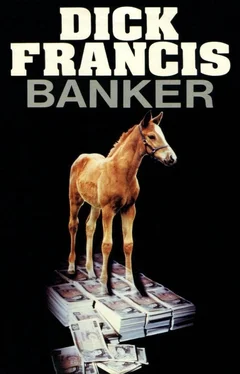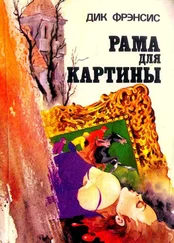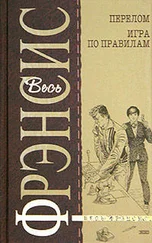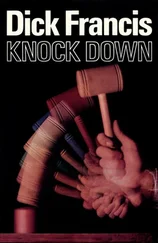‘Hello Ursula,’ he said, his voice carrying easily through the general din. ‘Bitter cold day.’
‘Calder.’ She nodded acknowledgement.
His gaze slid to my face, dismissed it, focused again on my companion. Then he did a classic double-take, his eyes widening with recognition.
‘Tim,’ he said incredulously. ‘Tim...’ he flicked his fingers to bring the difficult name to mind, ‘... Tim Ekaterin!’
I nodded.
He said to Ursula, ‘Tim, here, saved my life.’
She was surprised until he explained, and then still surprised I hadn’t told her. ‘I read about it, of course,’ she said. ‘And congratulated you, Calder, on your escape.’
‘Did you ever hear any more,’ I asked him. ‘From the police, or anyone?’
He shook his curly head. ‘No, I didn’t.’
‘The boy didn’t try again?’
‘No.’
‘Did you really have no idea where he came from?’ I said. ‘I know you told the police you didn’t know, but... well... you just might have done.’
He shook his head very positively however and said, ‘If I could help to catch the little bastard I’d do it at once. But I don’t know who he was. I hardly saw him properly, just enough to know I didn’t know him from Satan.’
‘How’s the healing?’ I said. ‘The tingling touch.’
There was a brief flash in his eyes as if he had found the question flippant and in bad taste, but perhaps mindful that he owed me his present existence he answered civilly. ‘Rewarding,’ he said. ‘Heartwarming.’
Standard responses, I thought. As before.
‘Is your yard full, Calder?’ Ursula asked.
‘Always a vacancy if needed,’ he replied hopefully. ‘Have you a horse to send me?’
‘One of my clients has a two-year-old which looks ill and half dead all the time, to the despair of the trainer, who can’t get it fit. She — my client — was mentioning you.’
‘I’ve had great success with that sort of general debility.’
Ursula wrinkled her forehead in indecision. ‘She feels Ian Pargetter would think her disloyal if she sent you her colt. He’s been treating him for weeks, I think, without success.’
Calder smiled reassuringly. ‘Ian Pargetter and I are on good terms, I promise you. He’s even persuaded owners himself sometimes to send me their horses. Very good of him. We talk each case over, you know, and act in agreement. After all, we both have the recovery of the patient as our prime objective.’ Again the swift impression of a statement often needed.
‘Is Ian Pargetter a vet?’ I asked incuriously.
They both looked at me.
‘Er... yes,’ Calder said.
‘One of a group practice in Newmarket,’ Ursula added. ‘Very forward-looking. Tries new things. Dozens of trainers swear by him.’
‘Just ask him, Ursula,’ Calder said, ‘Ian will tell you he doesn’t mind owners sending me their horses. Even if he’s a bit open-minded about the laying on of hands, at least he trusts me not to make the patient worse.’ It was said as a self-deprecating joke, and we all smiled. Ursula Young and I in a moment or two walked on and out of the bar, and behind us we could hear Calder politely answering another of the everlasting questions.
‘Yes,’ he was saying, ‘one of my favourite remedies for a prolonged cough in horses is liquorice root boiled in water with some figs. You strain the mixture and stir it into the horse’s normal feed...’
The door closed behind us and shut him off.
‘You’d think he’d get tired of explaining his methods,’ I said. ‘I wonder he never snaps.’
The lady said judiciously, ‘Calder depends on television fame, good public relations and medical success, roughly in that order. He owns a yard with about thirty boxes on the outskirts of Newmarket — it used to be a regular training stables before he bought it — and the yard’s almost always full. Short-term and long-term crocks, all sent to him either from true belief or as a last resort. I don’t pretend to know anything about herbalism, and as for supernatural healing powers...’ she shook her head. ‘But there’s no doubt that whatever his methods, horses do usually seem to leave his yard in a lot better health than when they went in.’
‘Someone at Ascot said he’d brought dying horses back to life.’
‘Hmph.’
‘You don’t believe it?’
She gave me a straight look, a canny businesswoman with a lifetime’s devotion to thoroughbreds.
‘Dying,’ she said, ‘Is a relative term when it doesn’t end in death.’
I made a nod into a slight bow of appreciation.
‘But to be fair,’ she said, ‘I know for certain that he totally and permanently cured a ten-year-old broodmare of colitis X, which has a habit of being fatal.’
‘They’re not all horses in training, then, that he treats?’
‘Oh no, he’ll take anybody’s pet from a pony to an event horse. Show jumpers, the lot. But the horse has to be worth it, to the owner, I mean. I don’t think Calder’s hospital is terribly cheap.’
‘Exorbitant?’
‘Not that I’ve heard. Fair, I suppose, if you consider the results.’
I seemed to have heard almost more about Calder Jackson than I had about stallion shares, but I did after all have a sort of vested interest. One tended to want a life one had saved to be of positive use in the world. Illogical, I dare say, but there it was. I was pleased that it was true that Calder cured horses, albeit in his own mysterious unorthodox ways: and if I wished that I could warm to him more as a person, that was unrealistic and sentimental.
Ursula Young went off about her business, and although I caught sight of both her and Calder during the afternoon, I didn’t see them again to speak to. I went back to London on the train, spent two hours of Sunday morning on the telephone, and early Sunday afternoon drove off to Hertfordshire in search of Oliver Knowles.
He lived in a square hundred-year-old stark red brick house which to my taste would have been friendlier if softened by trailing creeper. Blurred outlines, however, were not in Oliver Knowles’ soul: a crisp bare tidiness was apparent in every corner of his spread.
His land was divided into a good number of paddocks of various sizes, each bordered by an immaculate fence of white rails; and the upkeep of those, I judged, as I pulled up on the weedless gravel before the front door, must alone cost a fortune. There was a scattering of mares and foals in the distance in the paddocks, mostly heads down to the grass, sniffing out the last tender shoots of the dying year. The day itself was cold with a muted sun dipping already towards distant hills, the sky quiet with the greyness of coming winter, the damp air smelling of mustiness, wood smoke and dead leaves.
There were no dead leaves as such to be seen. No flower beds, no ornamental hedges, no nearby trees. A barren mind, I thought, behind a business whose aim was fertility and the creation of life.
Oliver Knowles himself opened his front door to my knock, proving to be a pleasant lean man with an efficient, cultured manner of authority and politeness. Accustomed to command, I diagnosed. Feels easy with it; second nature. Positive, straightforward, self-controlled. Charming also, in an understated way.
‘Mr Ekaterin?’ he shook hands, smiling. ‘I must confess I expected someone... older.’
There were several answers to that, such as ‘time will take care of it’ and ‘I’ll be older tomorrow’, but nothing seemed appropriate. Instead I said ‘I report back’ to reassure him, which it did, and he invited me into his house.
Predictably the interior was also painfully tidy, such papers and magazines as were to be seen being squared up with the surface they rested on. The furniture was antique, well polished, brass handles shining, and the carpets venerably from Persia. He led me into a sitting room which was also office, the walls thickly covered with framed photographs of horses, mares and foals, and the window giving on to a view of, across a further expanse of gravel, an archway leading into an extensive stable yard.
Читать дальше




